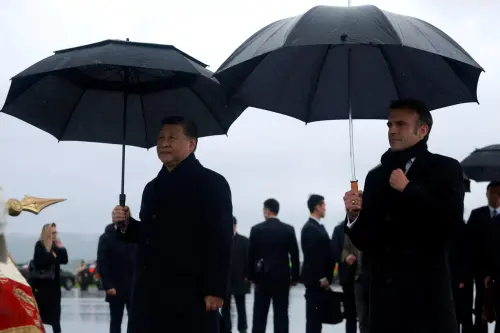

9:30 am EDT - 11:00 am EDT
Past Event
9:30 am - 11:00 am EDT
1775 Massachusetts Ave., NW
Washington, DC
On September 9, 2009, the Saban Center at Brookings hosted a policy discussion with
Alon Pinkas, former Consul General of Israel in New York and current President of the U.S.-Israel Institute at the Rabin Center in Tel Aviv. The discussion came in advance of Israeli Prime Minister Benjamin Netanyahu’s trip to New York to attend the UN General assembly and amid debate over the health of the United States-Israel relationship.
Pinkas opened the discussion by giving an overview of the parliamentary system of government in Israel and the current political atmosphere in the country, pointing to the implications of these on the current decision-making process of Prime Minister Netanyahu. Pinkas noted the difficulty that all Israeli prime ministers face in making unpopular decisions because doing so can have immediate, damaging political repercussions should political parties within the governing coalition defect. For this reason, Israeli prime ministers are closely attuned to the political climate, and often walk a fine line between making unpopular decisions and trying to preserve their governing coalition. For Prime Minister Netanyahu, this reality has come to the fore regarding the United States’ desire to have him restrict settlement construction.
Pinkas went on to describe how the history of the peace process and recent events have shaped the Israeli public’s mindset, forming what he believes to be Israel’s two guiding principles regarding the peace process. First, Pinkas argued that the futility of the peace process over the last fifteen years fundamentally affected the Israeli public’s political outlook. Specifically, the failure to obtain a peace agreement during the Clinton and Bush Administrations, and negative ramifications of Israel’s 2005 unilateral withdrawal from the Gaza Strip altered Israeli public opinion drastically. Israelis believe that they have already offered concessions, and have received little in return. Second, Pinkas said that the existential threat in the form of the Iranian nuclear program is at the forefront of Israelis’ minds. According to Pinkas, these two factors together impact the Israeli political sphere, and thus Israeli policy.
In terms of the nature of the United States-Israel relationship as well as the Obama-Netanyahu relationship, Pinkas stated that neither relationship is in a state of crisis, as many have suggested. However, Pinkas argued that Israel was taken off guard by the Obama Administration’s demand for Israel to halt settlement construction. According to Pinkas, Israel watched President Obama’s June 4 speech in Cairo closely, but did not expect that there would be immediate and serious follow up on the policies he presented. Therefore, Israelis were surprised when the Obama Administration put pressure on Israel to halt settlement construction.
Pinkas argued that Netanyahu’s decision to allow for the continued construction of 455 units in certain settlements was not a move intended to be confrontational. Pinkas expressed some surprise at the attention given to the 455 units, which he said would be relatively inconsequential in the long-run because they are in the settlement blocs that many believe will be in Israel under any future agreement.
In response to several questions, Pinkas expressed his belief that the actions of Palestinians, and more importantly the Arab world, are critical to moving the peace process forward. Pinkas said that bold demonstrations of a desire for peace by the Arab world, prompted by President Obama, could change the entire peace process dynamic. Such actions would have strong implications on public opinion within Israel, and would enable Prime Minister Netanyahu to “rise to the moment” and take steps to achieve an agreement.


Robin Brooks
May 9, 2024

Tara Varma
May 8, 2024

Marvin Kalb
May 6, 2024